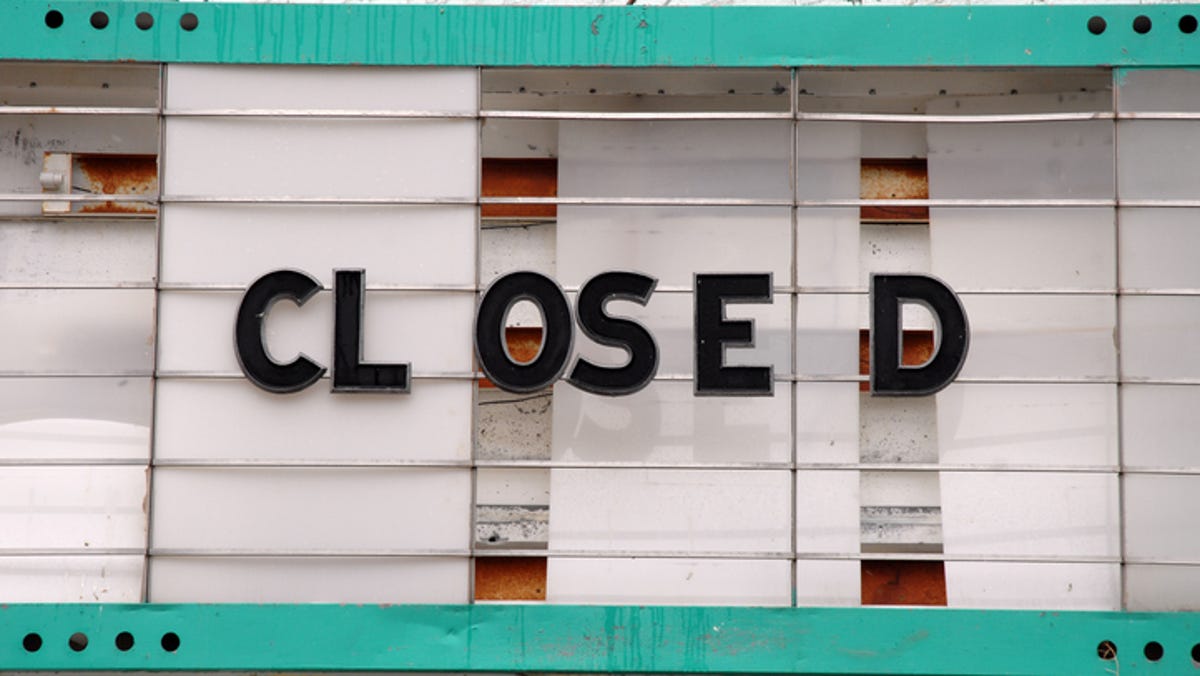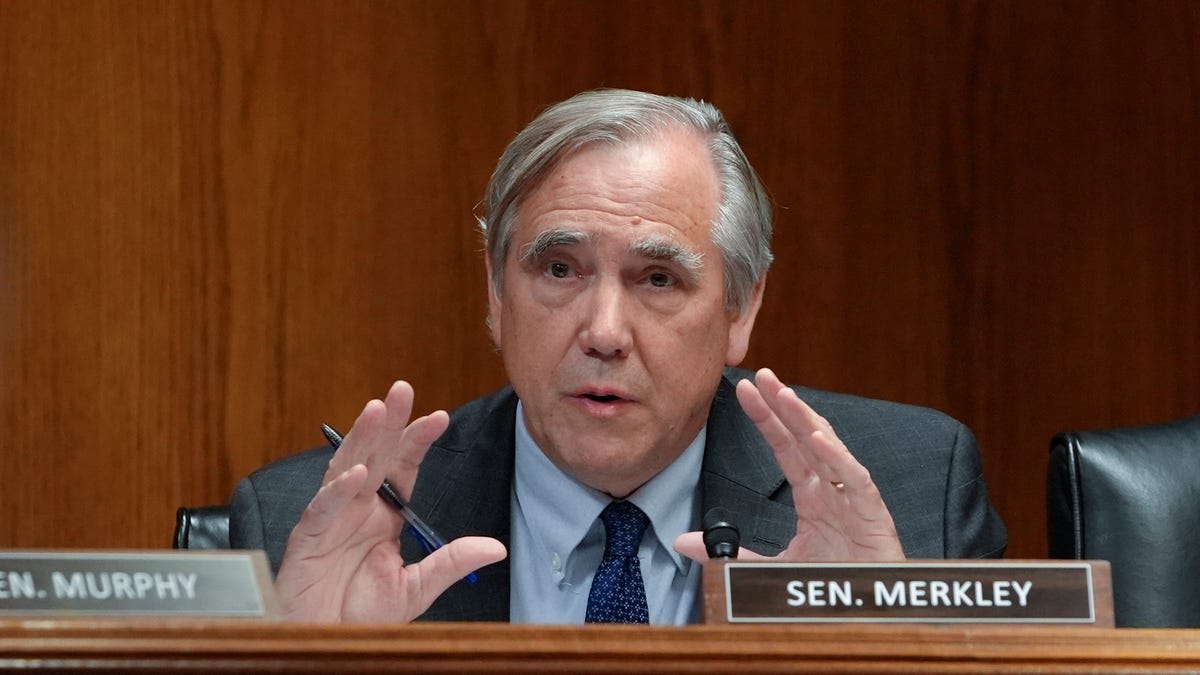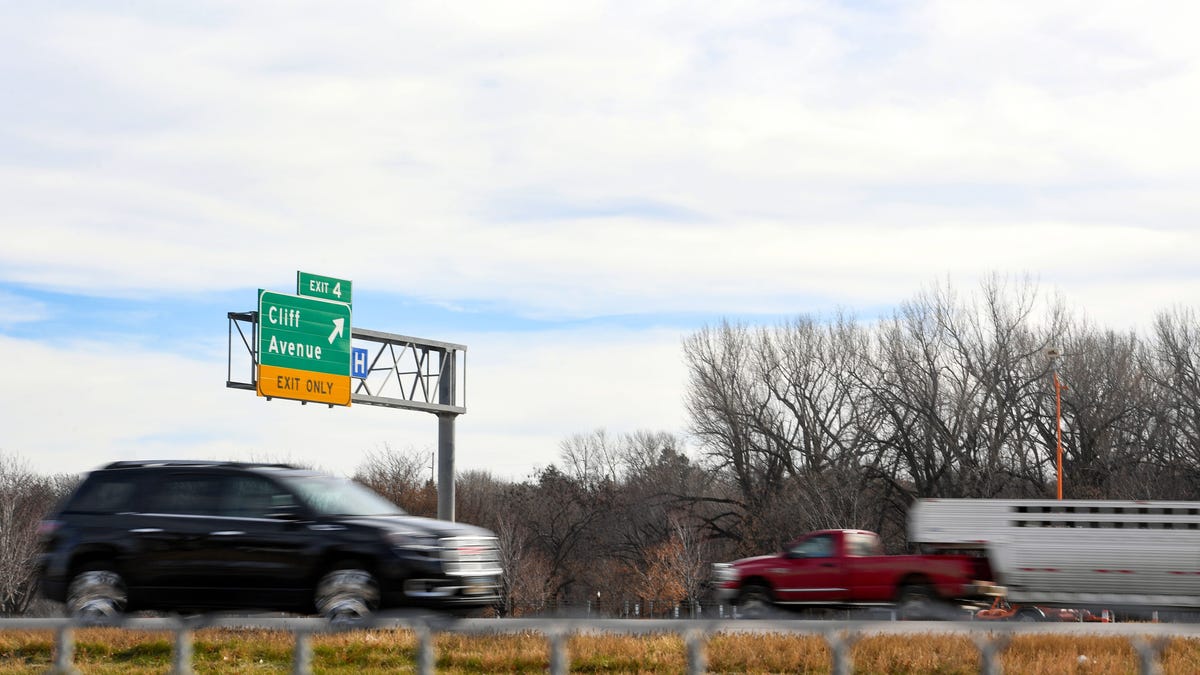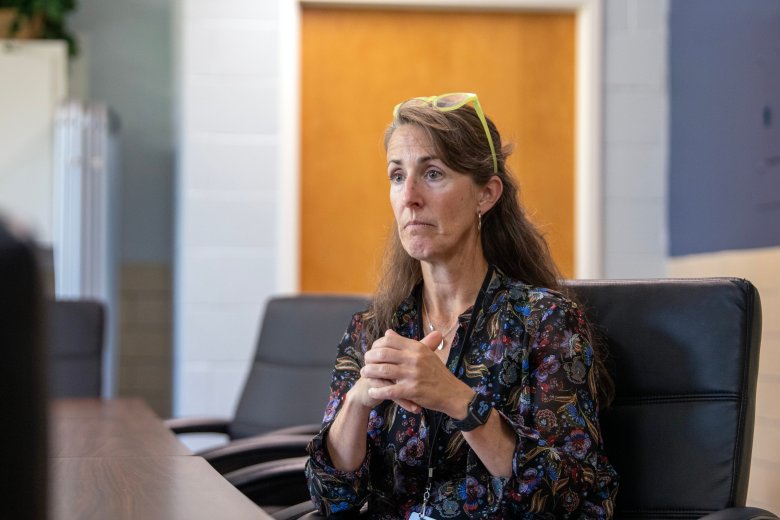Wisconsin
Wisconsin city files lawsuit against ‘forever chemical’ makers amid groundwater contamination

Distrust lingers after PFAS found in drinking water
The Environmental Protection Agency is expected to propose restrictions on harmful “forever chemicals” in drinking water after finding they are dangerous in amounts so small as to be undetectable, but experts say removing them will cost billions, a burden that will fall hardest on small communities with few resources. (March 2)
AP
MADISON, Wisc. – A central Wisconsin city is suing numerous manufacturers of so-called “forever chemicals,” commonly referred to as PFAS, in an attempt to hold them responsible for widespread contamination of the city’s drinking water wells.
A lawsuit was filed on behalf of Wausau, Wisconsin, a city of nearly 40,000 residents about 97 miles northwest of Green Bay, against 15 PFAS manufacturers and 61 major insurance players on Thursday, according to a news release from Wausau Mayor Katie Rosenberg’s office. The lawsuit was filed by Napoli Shkolnik, a national law firm specializing in environmental litigation.
The suit stems from the contamination of groundwater by PFAS in the city’s water system. According to the release, the city detected PFAS in six of its groundwater wells “as a direct and proximate result of the use of these chemicals by Defendants and other manufacturing companies in the area.”
The suit targets companies that manufactured the chemicals — which are used in various industrial and consumer products — for decades without informing customers of the risks. The release states that the defendants had purchased commercial general liability and “excess umbrella insurance policies” to cover liability for the city of Wausau’s injuries caused by using PFAS.
“The people of Wausau trusted that those corporations that earned billions of dollars creating products that were in nearly every household in America were doing so without putting our community’s health and resources at risk,” Rosenberg said in the release.
Wausau has one of the most extensive PFAS contaminations in the state, with contamination in all of its drinking water wells. The city is working to install a granulated carbon filtration system, which is currently the best way to extract PFAS from water.
The city council recently approved borrowing $17.5 million to finance a treatment system that will be installed over the course of the next year. The city also distributed hundreds of thousands of dollars of bottled water and filtration pitchers to residents after the contamination was found in January 2022.
“Local government taxpayers and water district ratepayers should not be responsible for PFAS drinking water contamination,” attorney Paul J. Napoli said in the release. “Those responsible, including relevant insurance companies, which have responsibility for public water system contamination should be accountable.”
Is yours on our map? EPA detected “forever chemicals” in water systems serving 46 million.
PFAS lawsuits becoming common in Wisconsin
Wisconsin cities have brought a host of lawsuits against the users and manufacturers of PFAS over the last few years.
In early November, the town of Campbell residents filed a lawsuit against the neighboring city of La Crosse, seeking money for property damage caused by PFAS in private wells and for a medical study on health impacts to residents.
In August, four residents in the town of Stella in Oneida County filed a lawsuit last week against the Ahlstrom-Munksjö Rhinelander paper plant, which they say provided the sludge used for years as cheap fertilizer on potato fields surrounding the municipality. Stella also sued manufacturers of PFAS and PFAS-containing products over contamination in their private wells earlier this year.
In 2021, Tyco Fire Products settled a class action lawsuit brought by hundreds of residents of Peshtigo, where a large contamination stemming from the testing of firefighting foam has fouled wells in the community.
And Dane County brought a lawsuit in 2022, which is being consolidated in a federal court in South Carolina. Some manufacturers have started to draw up settlements in those lawsuits, including 3M, which earlier this summer put forward a $10.3 billion proposal that would be paid out over 13 years to impacted communities.
The state of Wisconsin has also taken action against the company Tyco. State Attorney General Josh Kaul filed a lawsuit against the company last year, alleging that the company knowingly released PFAS into the environment for years — putting residents in Marinette and Peshtigo at risk.
‘Wasn’t safe to even eat a single fish’: Harmful ‘forever chemicals’ found in freshwater fish, yet most states don’t warn residents
About PFAS
PFAS, or per- and polyfluoroalkyl substances, are a group of man-made chemicals used for their water and stain-resistant qualities in consumer products such as clothing and carpet, nonstick cookware, packaging and firefighting foam.
According to the U.S. Geological Survey, there are more than 12,000 types of PFAS. The chemicals are also known as “forever chemicals” because of their persistence in both the environment and the human body, and their potential for toxicity. The chemicals have been linked to human illnesses, including cancers, lower birth weights, harm to immune and reproductive systems, altered hormone regulation, and altered thyroid hormones.
The chemicals enter the human body largely through drinking water. Recent data and studies have shown that PFAS are widespread across the country’s drinking water systems.
A USA TODAY analysis in August found that hundreds of community water systems, serving more than 27 million Americans, contain at least one type of PFAS.
Over the past year, states from Rhode Island to California have filed lawsuits against major chemical manufacturers, accusing them of covering up harm caused to the environment and public health by PFAS. In March, the U.S. Environmental Protection Agency proposed the first federal limits on forever chemicals in drinking water — limiting them to the lowest level that tests can detect.
Contributing: The Associated Press
Laura Schulte can be reached at leschulte@jrn.com and on X at @SchulteLaura.

Wisconsin
Universities of Wisconsin enrollment up, record increase of freshmen enrolled
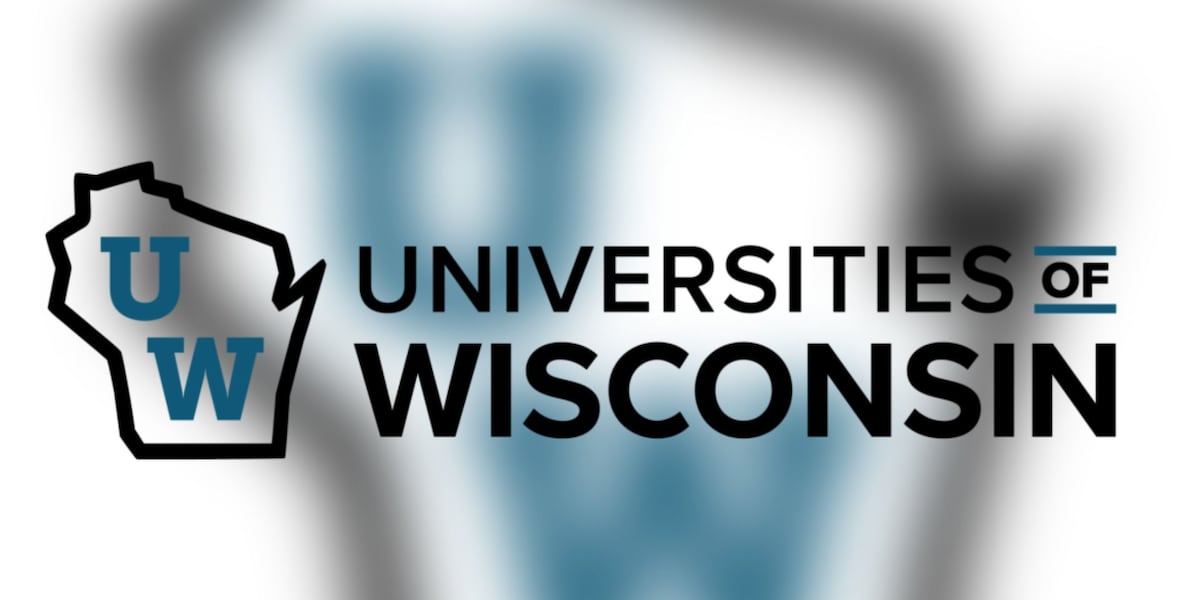
MADISON, Wis. (WMTV) – The Universities of Wisconsin announced Wednesday that enrollment is up for the third straight year thanks to a record number of freshmen enrolling in the system.
Enrollment across the universities for Fall 2025 topped out at 164,626 students, an increase of 190 students from Fall 2024.
This year’s enrollment numbers mark the first time enrollment has increased three years in a row since 2010.
The universities experienced a 5.5% increase, or 1,033 students, in Wisconsin resident new freshmen, and nine of the 13 universities experienced a jump in enrollment numbers.
“This is a moment worth celebrating,” said Universities of Wisconsin President Jay Rothman. “Three years of sustained growth shows that students and families see the Universities of Wisconsin as a smart investment in themselves and in Wisconsin’s future. It will help Wisconsin win the war for talent.”
For the increase, Rothman credits the Direct Admit Wisconsin program and the 2025 Wisconsin Tuition Promise. These programs, funded through the universities and Ascendium, helped show a 9% enrollment increase at seven participating universities.
“Direct Admit Wisconsin and the Wisconsin Tuition Promise have opened doors for more students across the state,” Rothman explained. “These initiatives are driving broad-based growth that reflects our commitment to serving all Wisconsinites.”
Overall enrollment numbers were slowed by a decline of 7.6% in international students.
Data shows UW-Madison has the most students, with 51,481 enrolled for the Fall 2025 semester. UW Superior is the smallest, with 2,872 enrolled students.
Click here to download the WMTV15 News app or our WMTV15 First Alert weather app.
Copyright 2025 WMTV. All rights reserved.
Wisconsin
22-year-old college student Zachary Roper runs for Wisconsin governor

MADISON, Wis. (WMTV) – The youngest candidate in Wisconsin’s gubernatorial race is a 22-year-old college student who says he wants to represent people tired of career politicians.
Zachary Roper, a political science major at Carthage College, is running for governor after an unsuccessful bid for Assembly in 2024. He says his professors encouraged him to seek the state’s top executive position.
Vanessa Kjeldsen: Why do you want to be governor?
Zachary Roper: I want to be governor because I want to represent the people of Wisconsin. I feel that the people have just had career politicians their entire life and we really need to get new leadership in the office.
VK: What would be your top priority as governor?
ZR: I have kind of two top priorities, but the top one would be education. I want to get more money into the schools… And then the other one is bipartisanship. We need to work together with the other side, reach across the aisle.
VK: You are the youngest candidate in this race. What perspective does that bring?
ZR: It brings a new perspective. I think many people overlook me for being a 22-year-old college student but it brings a new perspective to the young people.
VK: You previously ran unsuccessfully for Assembly. Now you’re running for the top executive position in this state. Why not run for something smaller first?
ZR: I have been asked that a lot, actually. I’ve been asked that numerous amount of times. My opponent, when I lost in 2024, actually said, you know, maybe run for city council. But my professors at the end of last year, sat me down and said, you have a vision for the state that most others do not at this time. We think you should try running for governor.
VK: So it was your professors at college that inspired you to run?
ZR: Yes, it was.
VK: How is balancing campaign season with your college classes?
ZR: It’s actually quite fun. My professors think it’s like a fun thing, though. They sometimes call me out. They’re like, hey, Zach, you know, you can use this for your campaign. I’m like, oh, I’ll think about it. I’ll think about it.
VK: What specifically would you change from the Evers administration?
ZR: The Evers administration has been focusing too hard on what Republicans want to do… The Republicans have controlled the new budget, and that to me was not a good thing.
VK: It is a Republican-controlled legislature. That makes it difficult for budget negotiations for a Democratic governor. How would you have worked through that differently than Evers did?
ZR: I would have asked them what concessions can they give. And if they came back to me with a list of concessions that they can give, I can come back with the concessions I can give.
VK: Do you expect to stay in the primary through August? Or is there a time that you would maybe drop out, endorse another Democrat?
ZR: I have thought about maybe dropping out and endorsing another candidate… I just haven’t seen a candidate that really stands out to me at this point.
VK: What’s your dream job?
ZR: Dream job? President, aiming for the top, as my parents always say.
Click here to download the WMTV15 News app or our WMTV15 First Alert weather app.
Copyright 2025 WMTV. All rights reserved.
Wisconsin
Wisconsin Lottery Powerball, Pick 3 results for Oct. 20, 2025
Manuel Franco claims his $768 million Powerball jackpot
Manuel Franco, 24, of West Allis was revealed Tuesday as the winner of the $768.4 million Powerball jackpot.
Mark Hoffman, Milwaukee Journal Sentinel
The Wisconsin Lottery offers multiple draw games for those aiming to win big. Here’s a look at Oct. 20, 2025, results for each game:
Winning Powerball numbers from Oct. 20 drawing
32-38-66-67-69, Powerball: 19, Power Play: 2
Check Powerball payouts and previous drawings here.
Winning Pick 3 numbers from Oct. 20 drawing
Midday: 0-2-9
Evening: 6-0-3
Check Pick 3 payouts and previous drawings here.
Winning Pick 4 numbers from Oct. 20 drawing
Midday: 5-7-7-8
Evening: 9-3-8-5
Check Pick 4 payouts and previous drawings here.
Winning All or Nothing numbers from Oct. 20 drawing
Midday: 01-05-07-09-13-15-16-17-18-20-21
Evening: 04-05-08-09-10-13-14-16-17-20-21
Check All or Nothing payouts and previous drawings here.
Winning Badger 5 numbers from Oct. 20 drawing
01-02-09-14-31
Check Badger 5 payouts and previous drawings here.
Winning SuperCash numbers from Oct. 20 drawing
05-08-14-20-22-24, Doubler: N
Check SuperCash payouts and previous drawings here.
Feeling lucky? Explore the latest lottery news & results
Are you a winner? Here’s how to claim your lottery prize
- Prizes up to $599: Can be claimed at any Wisconsin Lottery retailer.
- Prizes from $600 to $199,999: Can be claimed in person at a Lottery Office. By mail, send the signed ticket and a completed claim form available on the Wisconsin Lottery claim page to: Prizes, PO Box 777 Madison, WI 53774.
- Prizes of $200,000 or more: Must be claimed in person at the Madison Lottery office. Call the Lottery office prior to your visit: 608-261-4916.
Can Wisconsin lottery winners remain anonymous?
No, according to the Wisconsin Lottery. Due to the state’s open records laws, the lottery must, upon request, release the name and city of the winner. Other information about the winner is released only with the winner’s consent.
When are the Wisconsin Lottery drawings held?
- Powerball: 9:59 p.m. CT on Monday, Wednesday, and Saturday.
- Mega Millions: 10:00 p.m. CT on Tuesday and Friday.
- Super Cash: 9:00 p.m. CT daily.
- Pick 3 (Day): 1:30 p.m. CT daily.
- Pick 3 (Evening): 9:00 p.m. CT daily.
- Pick 4 (Day): 1:30 p.m. CT daily.
- Pick 4 (Evening): 9:00 p.m. CT daily.
- All or Nothing (Day): 1:30 p.m. CT daily.
- All or Nothing (Evening): 9 p.m. CT daily.
- Megabucks: 9:00 p.m. CT on Wednesday and Saturday.
- Badger 5: 9:00 p.m. CT daily.
That lucky feeling: Peek at the past week’s winning numbers.
Feeling lucky? WI man wins $768 million Powerball jackpot **
WI Lottery history: Top 10 Powerball and Mega Million jackpots
This results page was generated automatically using information from TinBu and a template written and reviewed by a Wisconsin editor. You can send feedback using this form.
-

 World2 days ago
World2 days agoIsrael continues deadly Gaza truce breaches as US seeks to strengthen deal
-

 Technology2 days ago
Technology2 days agoAI girlfriend apps leak millions of private chats
-

 News2 days ago
News2 days agoTrump news at a glance: president can send national guard to Portland, for now
-

 Business2 days ago
Business2 days agoUnionized baristas want Olympics to drop Starbucks as its ‘official coffee partner’
-

 Politics2 days ago
Politics2 days agoTrump admin on pace to shatter deportation record by end of first year: ‘Just the beginning’
-
Science2 days ago
Peanut allergies in children drop following advice to feed the allergen to babies, study finds
-

 News1 day ago
News1 day agoBooks about race and gender to be returned to school libraries on some military bases
-

 News1 day ago
News1 day agoVideo: Federal Agents Detain Man During New York City Raid

